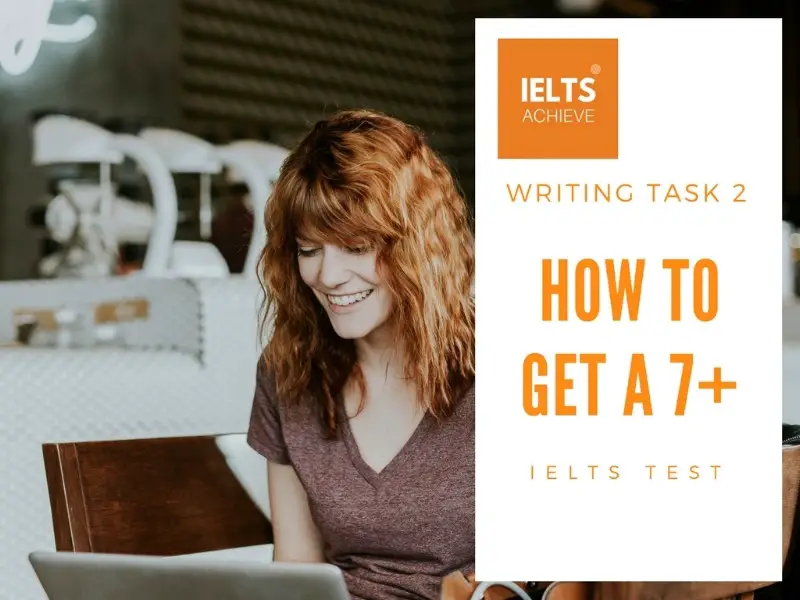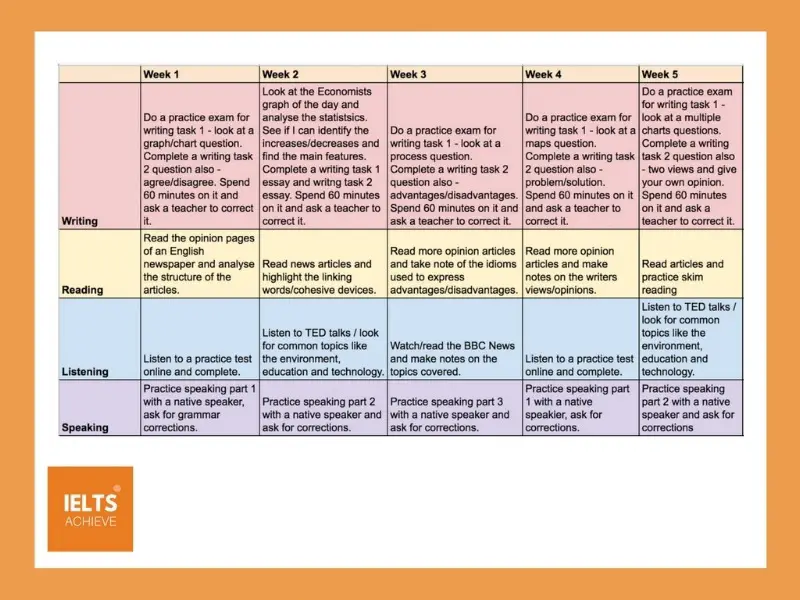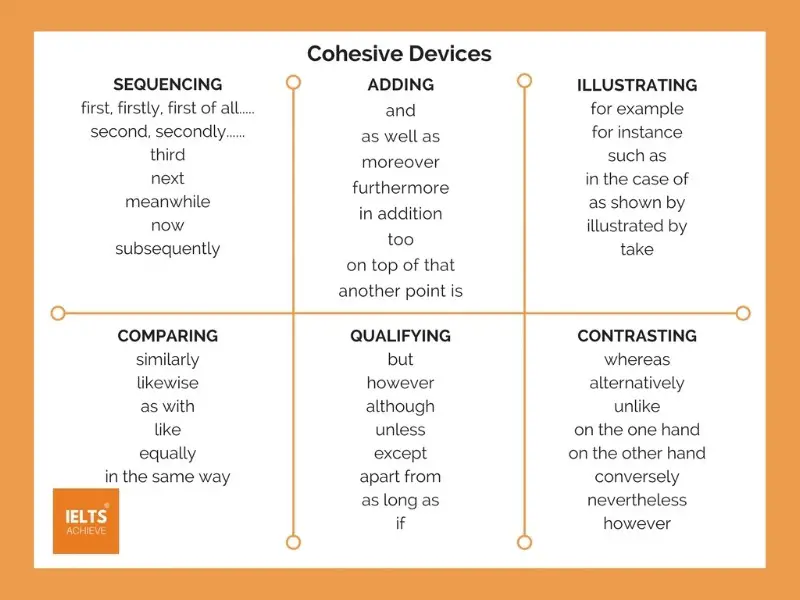
In this post, I want to share with you hints, tips, do’s and don’ts that will lead you to a band score of 7 or above on the Academic test. It is not an easy thing to do, as many of you probably know already!
It takes determination and motivation to study hard around work, family and any other commitments you may have.
Take a look at how you can try to get the best results possible in the IELTS exam:
Make a study plan
There are many ways in which you can prepare for your IELTS test, one way to start is to make a study plan. Focus on any weaknesses you may have and practice, getting a teacher to correct any essays or practice the speaking test with you. Many of the students I have taught who have scored a 7 or above have admitted to having studied for at least one hour per day.
Below is an example of a study plan, with each area of the exam covered. If you know that your main weakness is writing, spend more time on that – making sure you have an IELTS teacher correcting your work and giving you feedback. If you need to focus on vocabulary, practice and read as much as you can, especially for the Academic students who need to learn how to describe statistical trends.
Make your own study plan! Think about the following questions;
- When is your exam?
- How much time do you have to study each day or each week?
- What areas do you need to focus on the most?

IELTS Writing Tips
Most students struggle with the writing test and require a lot of practice before test day. Read the writing task 1 and 2 posts on this website and study the different structures needed for different types of questions. Remember the following;
TIP 1: Read the question properly
Make sure you read it a few times and highlight any keywords. What is the question asking you to do? Do you have to give your opinion or not?
TIP 2: Make a plan before you start writing your essay.
Learn the structures needed and plan accordingly in your exam. Take a few minutes to do this, so you can easily write your essay, including all of the things you need.
TIP 3: Remember your essay structure
In writing task 2 remember how to structure the essay so that it becomes planted into your brain! Include an introduction, main body paragraph 1, main body paragraph 2 and a conclusion (this may change depending on the type of question, but this structure is the basic skeleton).
TIP 4: Don’t overthink it
if you have ideas that are quite simple, that is fine. They don’t have to be really deep and complex to get a high band score. For example – if asked to give reasons why so many people are obese these days – one reason is overeating easily available calorie-rich junk food. Think about what you know about the subject/topic and go from there. Have you read anything about it? or seen anything on the news or in a documentary? I remember watching a documentary about the top 20 most obese countries once. So I could use that as one of my examples. I also remember reading about how the costs are inflating the healthcare system and more of taxpayers money is being spent on that, rather on public services. So that could be another example to use in my essay. The point is that all examples should be relevant to the question, even if they are simple.
TIP 5: Vocabulary
Make sure you are using the right vocabulary in your essay. You might try to boast and show the examiner how many high-level words you know, which is fine if you know for sure that they fit into the sentence and have the right meaning.
TIP 6: Give your opinion when asked
in the essay or in the speaking test, when asked for your opinion, give it clearly. Use phrases like, in my opinion, in my view, I think that, I believe that…. and then explain.
TIP 7: Use cohesive devices
this can get you high marks when used in the writing and speaking test. Don’t overdo it though! Overuse of these words can be a sure way to lose you marks. Words like – however, therefore, furthermore, in other words, for example, for instance, etc.

Planning for the big day!
When preparing for the day of the test, you should try to get there well on time. You must bring the same passport or ID card that you used on your application form. You also need to bring a pen, pencil and an eraser. You will not be allowed to take any electronic devices or a dictionary into the test area.
On the night before the test, read some English texts, similar to those you may read in the exam, for example, some opinion pieces from a newspaper. The Academic students could analyse graphs and charts as well or read over past assignments that have been corrected.
Things to do: You should also do the following:
- Give yourself time to check over your work before the exam ends.
- Highlight any keywords or numbers on the question paper.
- Make notes on the question paper before you begin to write.
- Always write in full sentences (no bullet points or unfinished sentences).
- Paraphrase! Make sure you paraphrase the question.
- Link your ideas together in writing task 2.
- Support with relevant examples.
- Read the question properly.
Things not to do: And please don’t:
- Use informal language
- Repeat the sentences written on the exam paper
- Spend more than 20 minutes on task 1
- Overuse those linking words/cohesive devices – moreover, however, nowadays etc.
